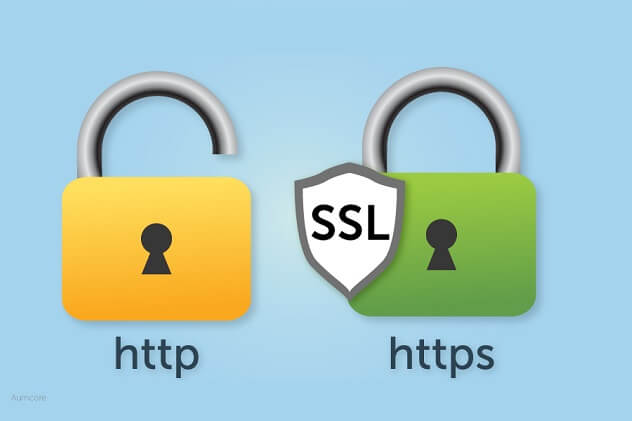As morning turned into afternoon, thread chatter increased as everyone tried to get their bearings and figure out exactly what the hoopla was all about. Is the update about link quality? Spammy ads? Bad content? Well, Fred’s the name and here’s the game:
Google Fred Update Basics
Google’s latest update comes on the heels of another unconfirmed content quality update on February 7 of this year. Actually, let’s steer away from calling it Google’s ‘latest’ update since they roll out numerous updates on a daily basis. Instead, we’ll call it what Gary Illyes suggests we call unnamed updates, Fred on Twitter.
Speaking of unnamed updates, or just unconfirmed updates in general (and veering off track for a bit), why the tight lips on Google’s part? It can be argued that by not commenting on these updates, Google is encouraging the overall improvement of SEO in general as opposed to focusing only on update pertinent issues. That being said, let’s take a look at what some people were saying about the update (pardon any spelling/grammar mistakes, they’re pasted as-is):
- “A MASSIVE drop in traffic happened on my site on the 7th of March at 8pm and has continued today (8th March). I have no idea why.”
- “90% of my keywords flew into oblivion. While 5% of the keywords I’m ranking have sank to deep search results; while the other 5% is still ranking as normal.”
- “I’ve noticed dramatic shifting in the past 24 hours with my website! Any one else experience the same thing?”
- “Iam also having some serious issues. My Websites dropped out of the Index around 9 hours ago. Im still trying to find out whats going on. None of them has used Black hat Methods or some other stuff. They just disappeared from the normal search index. Still the site: command shows that they are. On the upper hand some serious spam in my niche just came up from feed-scrappers and stuff. Maybe someone has an explanation.”
Take a look at an example of the traffic drop caused by Fred, courtesy of Google Analytics:

Who does the Google Fred Update Affect?
It seems that the majority of Fred related chatter is coming from the ‘black hat SEO’ community, so it’s a possibility that fluctuations in Google rankings are due to spammy behavior that impedes on the end user’s experience. But wait, as the last comment above pointed out, even sites not using black hat tactics felt the backlash. What’s up with that? A couple of things, actually.
Experts at Search Engine Land believe that Fred “targets low-value content sites that out revenue above helping the user.” Seeing as how most of the affected sites are content sites, and saw a 50%-90% traffic decline after the update, we could be onto something with this. If this sounds like you, take a look at the list of these types of sites on this page for commonalities with yours.
Low-Value Content Sites
So low-value content sites it is then. Let’s talk about this for bit. Low-value sites usually represent those that benefit the site owner rather than the end user. In other words, sites designed for Google’s web crawlers as opposed to UX. These are sites that are either monetized by ads or maximize revenue by gaining traffic (they get users to click on affiliated links or ads). They use keyword-heavy content, a lot of ads, and very little or no original visual content (photos, designs, videos, etc.). As a side note, some affected sites actually recovered their rankings by removing ads, so give it a try and see what happens.
Can I Recover from the Penalties?
Okay, avoid ads, spam, and crawler-focused content. Is there anything else I can do to recover from Fred’s wake? Yes, as a matter of fact, there is. Google has always been about the end user. That’s what’s most important for them, and the same should ring true for you.
First and foremost, appeal to users. Use visual content (appealing to users) and stay away from text-heavy content (laden with keywords for web crawlers). Are your links organic and benefit the user (do they add to your content?), or are they there to bring traffic to your site?
Don’t write just to write, write because there’s something you want your users to know, and make sure that it willbenefitthem. Similarly, don’t write the same thing over and over.

Here’s a general checklist for what you should be doing/what you should do to recover from Fred:
- FOCUS ON THE USER
- Aim for quality links from high-profile sites rather than a large quantity of links from unreliable sites
- Stay away from bots that create backlinks to your site
- Make sure content and links are relevant
- Be specific (e.g., “Along Came Fred. Here’s What You Need to Know About Google’s Latest Update” rather than “Google’s Update’s Causing Trouble for Webmasters”)
- Lower your ad-to-content ratio
To Sum it Up
Well, just like the Penguin 4.0 update late last year that focused on link quality, Fred may not affect your site if you’re following Google’s Webmasters Guidelines. If the Google Fred update does indeed target ‘bad sites,’ then your rankings can go up (if you’re not doing anything wrong) as others plummet. Regarding ads (because they’re vital for some sites), it’s not just about ads, but rather ad placement. Do they disrupt the flow of content? If the answer is yes, then make some changes and turn it into a no. As a final note, don’t rely on bad tactics to increase your website’s presence. Instead, read over this post on SEO trends that will prevail in 2017.





Tell us your thoughts in the comments